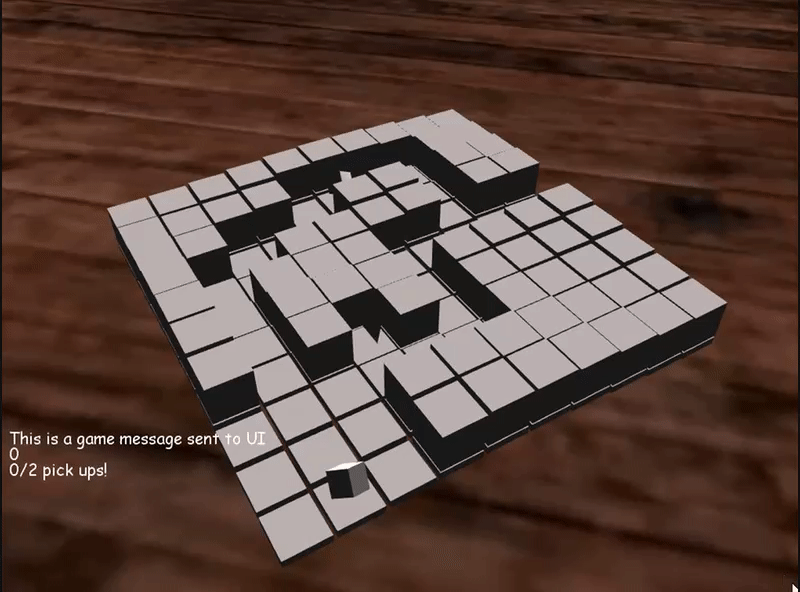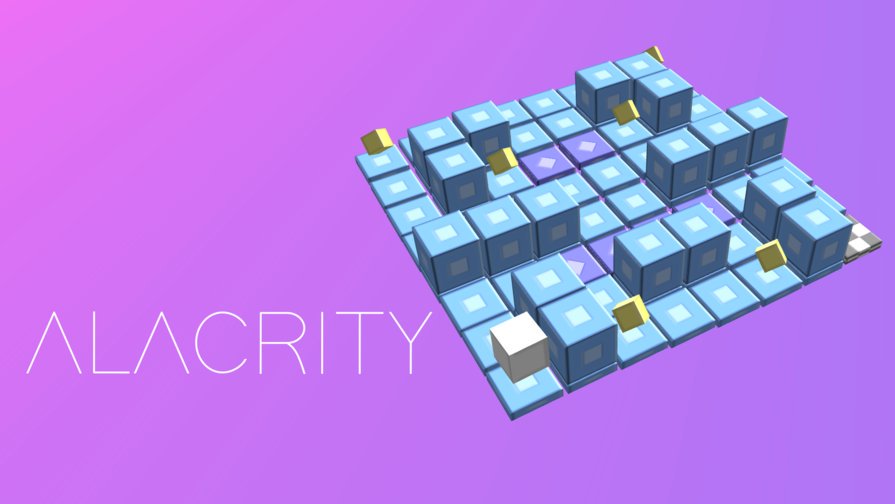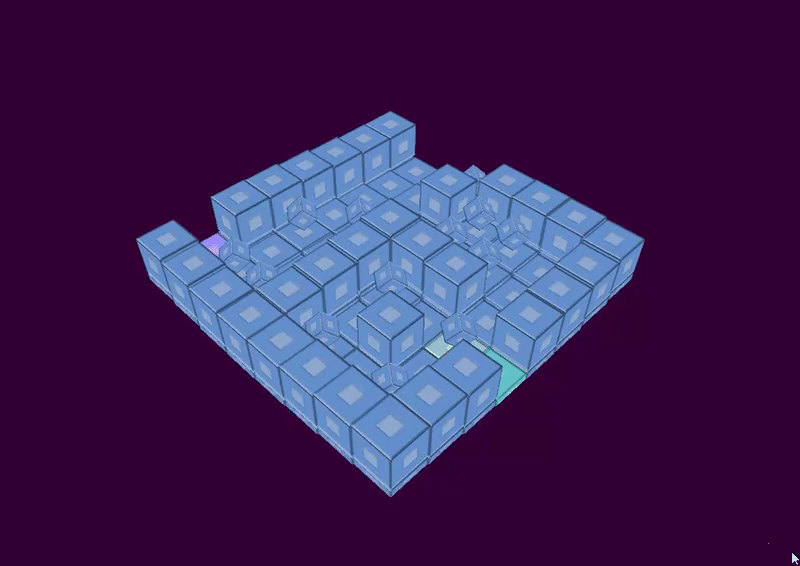What is Alacrity?
Alacrity is a tile-based puzzle game made for a university assignment where you have to collect pickups and get to to the finish before time expires. Note that the time-attack element of the game came from the requirement that we needed to make a ‘racing’ game. I worked on this game in a team made up of myself and my fellow university students.
How was it made?
This was the first assignment that wasn’t based around some engine like Unity, and was instead done in DirectX, something none of us had used up until this point other than in class. I had been tinkering with Monogame and already begun my obsession with going engine-less in gamedev.

Preview of Alacrity in early development.
Reception
Alacrity was praised as above the kind of standard our course leader was expecting and we were invited to show our game off at the end of year awards ceremony. Usually only Unity games are good enough to go, but fortunately we made it. Many parents and lecturers admired our game, each compliment resonating inside me. We won an award for having the best game of the show which felt amazing.
We were then invited to show our game off at an annual event our university holds. We set up our game on a computer so that people attending the event could play it. We talked to more teachers and lecturers and even some people from local games studio. We also got tickets to go to Unite Europe in Amsterdam, which is a Unity event, as they were mostly expecting Unity games to be there.


